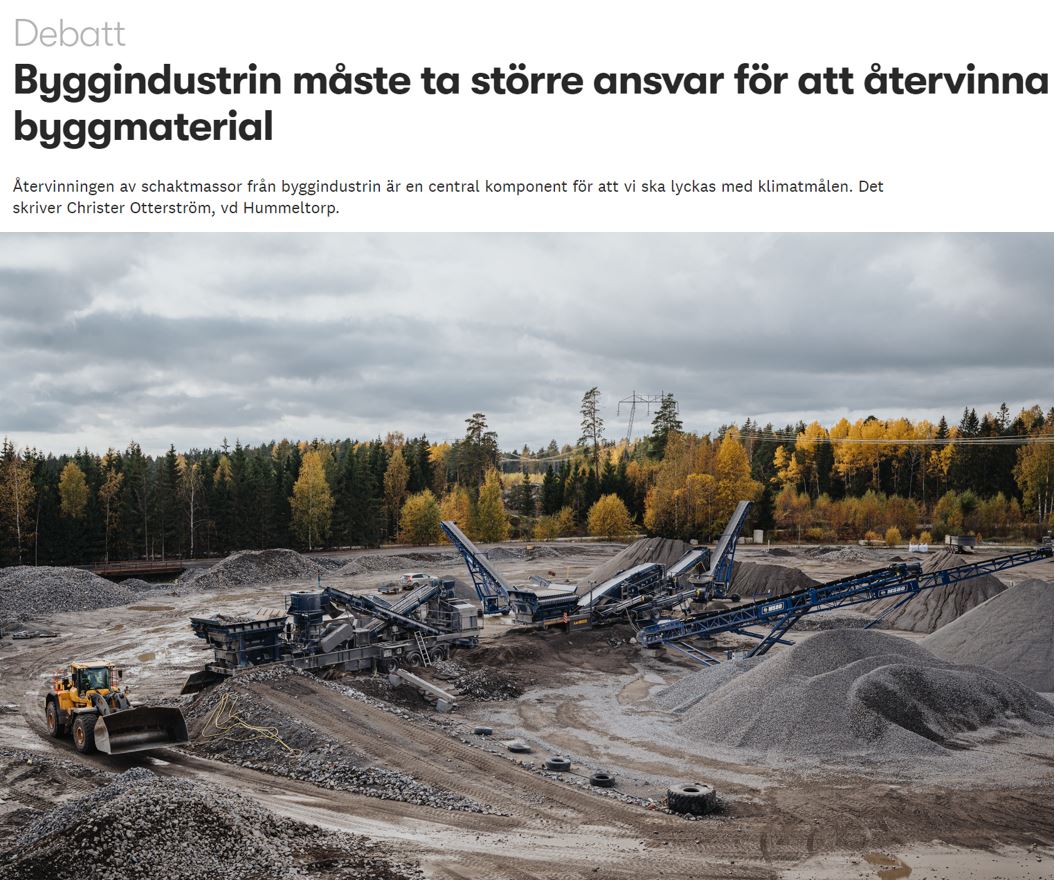The effects of climate change are clearer than ever when the countries of the world now meet at the climate conference COP28. The goal of the meeting is to negotiate how the countries shall slow down global warming. Meanwhile, 2023 is expected to be the warmest year ever recorded. When the world’s leaders gather to discuss climate challenges, it is important that companies reflect on what changes need to take place in business life. Recently, the IVL Swedish Environmental Institute released a report that shows that increased recycling of excavated materials from construction processes has major environmental benefits.
Today, millions of tons of sand and gravel are unnecessarily dug up. These masses are then transported by long one-way transports. Excavated materials are often transported from the construction site to remote landfills. A short time later, virgin materials extracted from nature such as crushed rock, natural gravel, soil and moraine material are transported from other similarly remote areas. These transports create a large and unnecessary negative climate impact. Recycling can often take place within significantly shorter distances than landfills. Since climate-smart recycling facilities also handle both excavated materials and aggregate products such as crushed rock, natural gravel, sand, moraine and soil, in combination with reasonable transport logistics, carbon dioxide emissions can be significantly reduced.
When one ton of excavated material is recycled, it positively affects the environment by two tons – one less ton that needs to be extracted in a quarry or gravel pit, and one less ton that ends up in landfills. Each recycled ton of excavated material benefits the environment and our nature in two different ways.
Now that the world’s leaders are gathering to discuss the climate challenges, it is important that the business sector also takes its responsibility. The recycling of excavated materials from the construction industry is a central component for us to succeed in the climate goals. By increasing the recycling of excavated materials, the construction sector can play a key role in creating a more sustainable future. With 2023 behind us as the hottest year on record, it is our duty to act responsibly for future generations. Let the recycling of excavated materials become a natural part of the sustainability work.
Read more in the debate article that Hummeltorp CEO Christer Otterström has written on the topic here.


